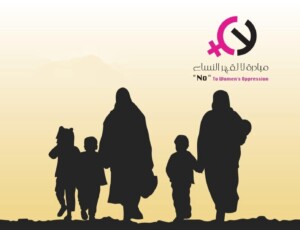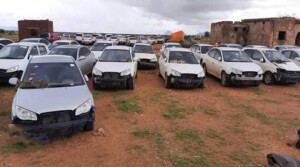Beja Nazirs insist on cancellation of Eastern Sudan peace protocol
The High Council of Beja Nazirs and Independent Chieftains will adhere to their demands for the cancellation of the Eastern Sudan Track, as agreed on in the 2020 Juba Peace Agreement and the formation of a ‘government of technocrats’ as stipulated in the Constitutional Document.
 Large crowds gathered in Shamboub in Kassala, to protest against the recent Beja nazirs actions, September 25 (Social media)
Large crowds gathered in Shamboub in Kassala, to protest against the recent Beja nazirs actions, September 25 (Social media)
The High Council of Beja Nazirs and Independent Chieftains will adhere to their demands for the cancellation of the Eastern Sudan Track, as agreed on in the 2020 Juba Peace Agreement and the formation of a ‘government of technocrats’ as stipulated in the Constitutional Document.
In a letter delivered to Sovereignty Council member Lt Gen Shamseldin Kabbashi on Tuesday, the Beja Nazirs Council stated that it will continue “blocking the East” and announced “a revolutionary escalation” until their demands are met.
The Beja leaders had set Monday evening as a deadline for the Sudanese government to respond to their demands, that also include the allocation of 50 per cent of eastern Sudan’s resources for the development of the region (Red Sea state, Kassala, and El Gedaref).
The Beja nazirs have opposed the Eastern Sudan Track since it was first agreed upon during the peace negotiations between the Sudanese government and the Sudan Revolutionary Front rebel alliance in the South Sudan capital of Juba in February 2020. The track was negotiated the Beja Congress in Opposition and the United Popular Front for Liberation and Justice. The Beja Nazirs Council was not involved in the talks that led to the signing of the Juba Peace agreement on October 3 last year.
The Beja leaders’ council, headed by Nazir Sayed Tirik, reacted at the time by calling for an inclusive eastern Sudan conference to decide on the future of the region. Members of the council organised two large protest events last year, in Sinkat in Red Sea state and in Telkok in Kassala, where they threatened they would demand the right to self-determination for eastern Sudan if the government would not comply to their demands.
Protest actions
Last month, the Beja Nazirs Council announced larger protest actions to put more pressure on the Sudanese government to cancel the Eastern Sudan Track protocol. The Khartoum-Port Sudan highway and roads linking Red Sea state with Kassala and El Gedaref and the railway lines were blocked, and most of the ports and the pipelines transporting oil from Sudan and also from South Sudan were closed.
The Beja chiefs this time also demand the formation of a government of technocrats. “We demand a competent government as the current partisan government is too slow in responding to our demands,” spokesman Abdallah Obshar told Radio Dabanga on September 20.
In a visit of a high-level government delegation from Khartoum, chaired by Sovereignty Council member Lt Gen Shamseldin Kabashi, in the last weekend of September, it was agreed to continue negotiations the following week. The delegation proposed to hold “a comprehensive conference on eastern Sudan, the results of which would be binding for the government and the rest of the parties”. In response, the blockades of the pipelines and one port were lifted. The other ports, the railways, and the main roads remained blocked.
After receival of the letter from the Beja leaders, Kabbashi said he would forward it to the National Peace Council, to be discussed in the following meeting.
'Impossible'
Darfuri rebel leaders Jibril Ibrahim and El Hadi Idris have already stated that it is impossible to change parts of the Juba Peace Agreement. The cancellation of the Eastern Sudan Track protocol will lead to the “collapse” of the entire peace agreement.
According to Idris, that the current problems have been caused by the delay in holding an inclusive eastern Sudan conference, in order “to complete the Eastern Sudan Track agreement”.
The Ministry of Transport reported last weekend that the closure of the Red Sea state Southern Port has already cost the Sudanese treasury “large sums”.
Counter-actions
The protest actions of the Beja nazirs have led to the filing of a lawsuit against them by a group of activists in Khartoum. The Beja leaders are accused of undermining civil state authority, threatening the transitional period, inciting hatred, violence and tribalism, and sabotaging the national economy.
Red Sea state, Kassala, and El Gedaref in September witnessed a number of popular protests against the Beja actions. The protestors said that “affiliates of the former regime” were behind the road closures. They called for acceleration of the implementation of the Eastern Sudan Track and pointed to the duty of the security forces to protect public assets from being blocked.











 and then
and then